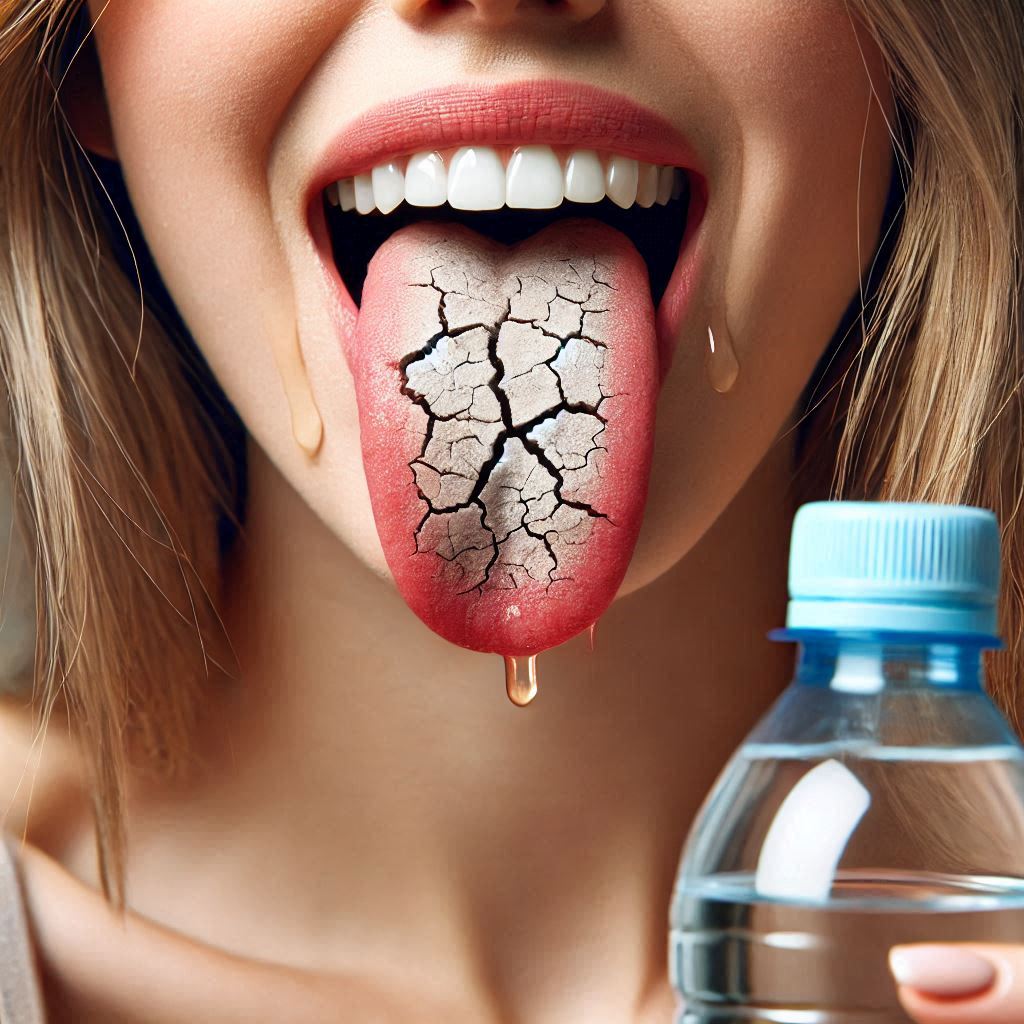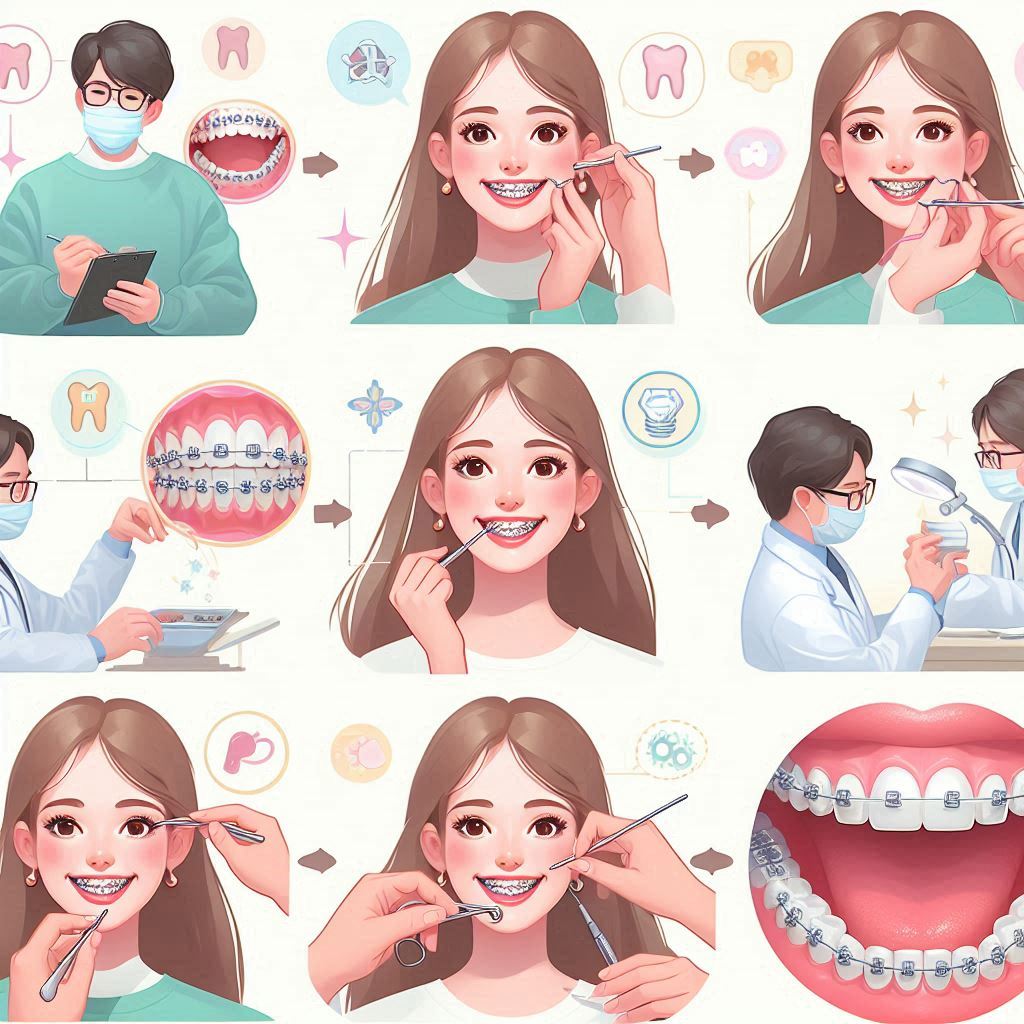Dry mouth, or xerostomia, is a condition that impacts millions of individuals globally. It occurs when the salivary glands do not produce enough saliva, which is crucial for several vital functions, such as lubricating the mouth, aiding in digestion, and protecting against oral infections. Saliva plays a key role in the initial stages of digestion by breaking down food particles and helping with swallowing. When saliva production is insufficient, it can lead to discomfort, difficulty eating or speaking, and an increased risk of tooth decay and gum disease.
Dry mouth can result from various factors, including dehydration, medications, health conditions like diabetes or autoimmune diseases, and even stress. However, its connection to digestive health is often overlooked. A lack of saliva can disrupt the digestive process, starting with the breakdown of food in the mouth, potentially leading to indigestion and nutrient absorption issues. Additionally, dry mouth can exacerbate conditions like gastroesophageal reflux disease (GERD) or other gastrointestinal disorders. Understanding the link between dry mouth and digestive health is essential for effective management and improving overall well-being.
What Is Dry Mouth?
Dry mouth occurs when there is a decrease in the production of saliva, which serves several essential functions in the mouth. Saliva helps in lubrication, preventing oral tissues from becoming irritated. It also plays a crucial role in digestion, starting the breakdown of food in the mouth, and helps wash away food particles and bacteria, preventing infection and tooth decay.
When the mouth becomes dry, people often experience discomfort, difficulty swallowing, speaking, or even tasting food. A dry mouth can also lead to bad breath, oral infections, and increased risk of cavities. While dry mouth is a common condition, it can be linked to a variety of underlying issues.
The Role of Saliva in Oral and Digestive Health
Before we explore the reasons for dry mouth and its relationship with digestive health, it’s crucial to understand the essential role of saliva in the body. Saliva is not just important for speaking or chewing; it plays a fundamental part in digestion and the overall health of the oral cavity.
Saliva Composition and Functions
Saliva is composed mainly of water, but it also contains electrolytes, mucus, enzymes, and antimicrobial agents. Its primary functions include:
- Lubrication: Saliva lubricates the mouth, making it easier to speak, swallow, and chew food.
- Digestion: Enzymes like amylase in saliva begin the breakdown of carbohydrates as soon as food enters the mouth. Lipase, another enzyme found in saliva, helps break down fats.
- Antimicrobial Action: Saliva contains proteins like lysozyme that kill bacteria and prevent infections.
- Protection: Saliva helps protect the oral tissues from abrasion and damage, acting as a buffer to maintain the pH balance in the mouth.
- Taste: Saliva dissolves food particles, allowing them to interact with taste receptors on the tongue.
- Healing: Saliva accelerates the healing process of oral wounds and injuries due to the presence of growth factors.
In terms of digestive health, saliva is the first step in the digestion process. Without sufficient saliva, digestion is compromised, leading to potential complications.
Understanding Dry Mouth (Xerostomia)
Dry mouth, or xerostomia, is a condition where the salivary glands do not produce enough saliva to keep the mouth moist. It can manifest as a sticky or dry feeling in the mouth, difficulty swallowing, bad breath, sore throat, and an increased risk of dental cavities. Although dry mouth may seem like a minor inconvenience, it can have a significant impact on a person’s quality of life and oral health.
Common Symptoms of Dry Mouth
Some of the most common symptoms of dry mouth include:
- A dry, sticky feeling in the mouth
- Difficulty swallowing, chewing, or speaking
- A dry throat and hoarseness
- Cracked lips or mouth sores
- Increased thirst
- Dry or burning feeling on the tongue
- Foul-smelling breath (halitosis)
- Difficulty wearing dentures
Potential Causes of Dry Mouth
There are various causes of dry mouth, including environmental factors, health conditions, medications, and lifestyle habits. We’ll explore these causes in detail later, but for now, it’s important to understand the underlying mechanisms.
- Dehydration: The most straightforward cause of dry mouth is dehydration. When the body is not properly hydrated, it can lead to insufficient saliva production. Dehydration can occur due to not drinking enough fluids, excessive sweating, fever, or certain illnesses that cause vomiting or diarrhea. If dehydration is the cause, increasing fluid intake and maintaining proper hydration can help alleviate dry mouth.
- Medications: Certain medications can cause dry mouth as a side effect. Common drugs that can lead to this condition include antihistamines, antidepressants, decongestants, blood pressure medications, and pain relievers. These drugs can reduce the production of saliva, leading to a dry, uncomfortable feeling in the mouth.
- Mouth Breathing: Breathing through the mouth instead of the nose, especially during sleep, can cause the mouth to dry out. Conditions like nasal congestion, allergies, or sleep apnea can cause individuals to breathe through their mouths at night, leading to a parched feeling in the morning.
- Health Conditions: Certain health conditions are associated with dry mouth. These include autoimmune diseases like Sjögren’s syndrome, where the body’s immune system attacks moisture-producing glands, and diabetes, which can lead to dehydration. Additionally, conditions such as Parkinson’s disease, HIV/AIDS, and Alzheimer’s disease can affect the salivary glands’ function.
- Stress and Anxiety: Can also play a role in dry mouth. When the body is under stress, it triggers the fight-or-flight response, which leads to a reduction in the production of saliva. Additionally, stress often leads to habits like mouth breathing or decreased hydration, further contributing to dry mouth.
- Smoking and Alcohol: Both smoking and alcohol consumption can contribute to dry mouth. Smoking reduces saliva production and irritates the salivary glands, while alcohol can have a dehydrating effect on the body, leading to insufficient moisture in the mouth.
While dry mouth itself is a condition, it is often symptomatic of an underlying issue that may have broader implications for overall health, particularly digestive health.
How Dry Mouth Affects Digestive Health
Saliva’s role in digestion is multifaceted, starting as soon as food enters the mouth. Saliva contains enzymes that begin the process of breaking down food, making it easier for the digestive system to absorb nutrients. When saliva production decreases, this process is hampered, which can lead to a range of digestive complications.
Difficulty in the Initial Stages of Digestion
The first stage of digestion occurs in the mouth, where food is broken down by enzymes in the saliva. Amylase begins the breakdown of starches into sugars, while lipase helps break down fats. If there is insufficient saliva, carbohydrates and fats may not be broken down properly, leading to indigestion or discomfort. In some cases, undigested food can make its way into the stomach and cause bloating, heartburn, or other digestive issues.
Additionally, difficulty swallowing due to dry mouth can result in food being poorly chewed and inadequately processed, which can further complicate digestion in the stomach and intestines. This leads to delayed or inefficient nutrient absorption.
Gastroesophageal Reflux Disease (GERD)
Gastroesophageal reflux disease (GERD) is a chronic condition where stomach acid leaks into the esophagus, causing symptoms like heartburn and acid reflux. People with GERD often experience dry mouth for several reasons. First, acid reflux can irritate the salivary glands, resulting in reduced saliva production. Second, the discomfort and pain associated with GERD may cause people to breathe through their mouths, which can exacerbate the feeling of dryness in the mouth.
Moreover, the reduced saliva can cause difficulty swallowing, which can make GERD symptoms worse by impairing the ability to clear acid from the esophagus. This creates a vicious cycle where dry mouth exacerbates GERD and vice versa.
Dry Mouth and Oral Health Complications
Dry mouth has a profound effect on oral health, which in turn impacts digestive health. Saliva acts as a natural cleanser for the mouth, helping to remove food particles, bacteria, and acid. When there is insufficient saliva, bacteria and food particles remain in the mouth, leading to bad breath (halitosis), tooth decay, and gum disease. These oral health issues not only affect the quality of life but can lead to systemic infections that may impact the digestive system.
In severe cases, the lack of saliva can contribute to the formation of oral infections like thrush (a fungal infection), which can spread to other areas of the digestive tract, including the throat and esophagus. This can lead to difficulty swallowing and digestion, creating further complications for individuals with underlying digestive health issues.
Impact on Taste and Appetite
Dry mouth can also affect taste perception. When the mouth lacks moisture, food cannot dissolve properly, which hinders its interaction with taste receptors. This diminished sense of taste may result in reduced appetite, which in turn can negatively affect nutrition. A lack of proper nutrition can contribute to digestive issues like bloating, constipation, or even nutrient deficiencies, creating a cascade of digestive health problems.
The Role of Specific Digestive Disorders in Dry Mouth
Many digestive conditions can either directly cause dry mouth or exacerbate it. In some cases, dry mouth may even be one of the first symptoms to appear, alerting individuals to the presence of an underlying digestive issue. Here are some of the most common digestive disorders associated with dry mouth:
Irritable Bowel Syndrome (IBS)
Irritable bowel syndrome (IBS) is a functional gastrointestinal disorder that affects the large intestine. People with IBS often experience symptoms like bloating, abdominal pain, diarrhea, and constipation. Although dry mouth is not a direct symptom of IBS, it can occur as a result of dehydration or as a side effect of medications commonly used to treat IBS symptoms, such as antispasmodics and laxatives.
Celiac Disease
Celiac disease is an autoimmune disorder in which the ingestion of gluten triggers damage to the small intestine. This condition can lead to nutrient malabsorption, dehydration, and oral health problems. Due to the malabsorption of essential nutrients, individuals with celiac disease may experience dry mouth, along with other digestive and oral health complications.
Crohn’s Disease
Crohn’s disease is an inflammatory bowel disease (IBD) that causes inflammation in the digestive tract. The disease can lead to dehydration due to chronic diarrhea, which can, in turn, result in dry mouth. Additionally, people with Crohn’s disease may take medications like corticosteroids and immunosuppressants, which are known to contribute to dry mouth as a side effect.
Peptic Ulcers
Peptic ulcers are sores that develop in the lining of the stomach or the duodenum. These ulcers can be caused by infections from the bacterium Helicobacter pylori or by the prolonged use of nonsteroidal anti-inflammatory drugs (NSAIDs). People with peptic ulcers may experience dry mouth as a result of dehydration or the side effects of medications used to treat ulcers.
How to Manage Dry Mouth and Support Digestive Health
Managing dry mouth and improving digestive health requires a multifaceted approach that addresses the root causes of both conditions. Here are some strategies to help manage dry mouth while supporting overall digestive health:
Stay Hydrated
One of the simplest yet most effective ways to alleviate dry mouth is by staying hydrated. Drink water throughout the day, particularly before and during meals, to help promote saliva production. Avoid excessive consumption of caffeinated or alcoholic beverages, as they can exacerbate dehydration.
Saliva Substitutes and Mouth Moisturizers
For individuals suffering from chronic dry mouth, saliva substitutes and mouth moisturizers can provide temporary relief. These products can be purchased over-the-counter and can mimic the lubricating effects of saliva.
Practice Good Oral Hygiene
Good oral hygiene is essential to prevent infections and tooth decay. Brush your teeth twice a day, floss regularly, and use an antimicrobial mouthwash to help reduce the risk of oral health complications. If dry mouth persists, consider using a toothpaste designed for sensitive mouths or one that is specifically formulated for people with xerostomia.
Chewing Sugar-Free Gum or Lozenges
Chewing sugar-free gum or sucking on sugar-free lozenges can stimulate saliva production. Look for products that contain xylitol, which is not only a sweetener but also helps to reduce the growth of cavity-causing bacteria.
Address Underlying Digestive Issues
If your dry mouth is a result of a digestive condition, such as GERD, IBS, or celiac disease, it is essential to work with your healthcare provider to manage the underlying issue. Treatment may involve medication, dietary changes, and lifestyle modifications to reduce symptoms and improve overall digestive health.
Consider Medication Adjustments
If medications are causing your dry mouth, talk to your doctor about potential alternatives or adjustments to your treatment regimen. Your healthcare provider may be able to recommend a different medication or reduce the dosage to alleviate dry mouth symptoms.
Use Natural Remedies
Some people find relief from dry mouth by using natural remedies. Aloe vera gel, for example, is known for its soothing properties and may help moisturize the mouth. Herbal teas like chamomile or peppermint can also promote saliva production and provide relief.
Conclusion
Dry mouth is more than just an uncomfortable condition—it can significantly affect digestive health. Difficulty swallowing, chewing, and digesting food, along with a heightened risk of oral health problems, make dry mouth a multifaceted issue that shouldn’t be overlooked. The link between dry mouth and digestive health is crucial for both prevention and effective management. Whether caused by dehydration, medication side effects, or an underlying digestive disorder, addressing dry mouth can improve both oral and digestive well-being. Saliva plays a vital role in digestion, breaking down food and facilitating swallowing. A lack of saliva can disrupt this process, leading to indigestion and poor nutrient absorption. Dry mouth can also exacerbate conditions like gastroesophageal reflux disease (GERD) and affect overall comfort during meals.
Managing dry mouth involves simple yet effective strategies. Staying hydrated, practicing good oral hygiene, and addressing any underlying digestive health issues are key. In some cases, medical interventions or lifestyle changes, such as adjusting medications or incorporating saliva substitutes, can be beneficial. By taking steps to restore moisture to the mouth and maintain digestive health, individuals can improve their quality of life and avoid further complications.
SOURCES
Dawson, J. L. & Smith, E. L. (2020). The role of saliva in oral health and digestion. Journal of Oral Health and Disease, 25(4), 112-119.
Jones, M. A. (2018). Xerostomia: Understanding dry mouth and its implications for health. Clinical Oral Medicine and Research, 15(3), 45-52.
Miller, L. R. (2019). Dehydration and its effects on saliva production: A clinical overview. Journal of Clinical Dentistry, 30(2), 85-92.
McGrath, M. E. & Parker, T. S. (2017). Digestive health and the role of saliva: A review. International Journal of Gastroenterology, 48(6), 303-311.
Singh, R. & Thompson, P. M. (2021). The connection between digestive disorders and dry mouth. Gastrointestinal Health Review, 22(1), 67-75.
White, H. A. & Johnson, F. T. (2015). Managing dry mouth in patients with digestive issues. Journal of Digestive Disorders, 18(5), 156-163.
Wilkins, C. D. (2022). The impact of medications on salivation and oral health. Pharmacology and Therapeutics, 39(4), 99-106.
Zhang, Y. L. (2016). Impact of autoimmune diseases on oral health and saliva production. Oral Medicine Research, 9(2), 78-83.
McKee, R. A. & Olson, P. J. (2018). Hydration and oral health: A critical review. Journal of Hydration Therapy, 11(4), 122-130.
Martin, S. J. (2017). The pathophysiology of xerostomia: Exploring the relationship with digestive health. Gastroenterology and Hepatology, 40(3), 145-152.
HISTORY
Current Version
January 21, 2025
Written By:
SUMMIYAH MAHMOOD




